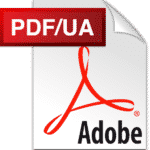File Formats for AODA Compliance
The format you need to be 100% AODA compliant.
Scope of this article
Before we start, understand that the AODA legislation defines “accessible formats” to include things like large print, recorded audio, recorded video, braille and other formats usable by persons with disabilities. This article is only concerned with electronic text or graphic based documents (but not websites).
What does the AODA legislation say?
Under Part II (Information and Communication Standards), Section 12, the legislation calls for:
Every obligated organization shall upon request provide or arrange for the provision of accessible formats and communication supports for persons with disabilities in a timely manner that takes into account the person’s accessibility needs due to disability; and at a cost that is no more than the regular cost charged to other persons. The obligated organization shall consult with the person making the request in determining the suitability of an accessible format or communication support.
What does the AODA legislation mean?
The legislation does not provide specific guidance on which accessible format is required. It also does not require that organizations make multiple formats available. It does say that you must have at least one accessible format available and be ready to accommodate requests (in consultation with the person making the request) for other formats.
What format is best for AODA compliance?

The best feature of PDF documents is their universality. They can be opened and viewed on any computer, operating system or software application that supports it. This format provides the highest standards of accessibility, compliance, and usability. It sustains the original design and appearance of the document as intended by the author, and it is also ideal for printing and electronic distribution.
Most software tools that generate digital files support the PDF format and even allow users to create PDF versions of their files from within their software apps. We highly recommend this format. Contact us if you have any questions.
Accessible PDF vs. HTML
To begin, HTML is the language of webpages, and so it is not likely that your staff are using it to author your documents. Although documents can be made into accessible HTML files, it is far more time consuming (read costly) than producing accessible PDFs. Converting to accessible HTML format can be more than triple the cost of creating an accessible PDF! In addition, you may lose some of the design features of the original document.
PDFs have far more functionality and are a superior file format. A PDF (Portable” Document Format) allows users to easily access information across different devices and operating systems, regardless of which software application the document may have been authored in.. For this reason, we (and Adobe) recommend using tagged PDF/UA for your documents.
What about other file formats?
As stated above, if a person with a disability contacts an organization and requests a different format, you must accommodate their request. That said, most file formats in use today are not optimized for accessibility, and are therefore, not useful to those with assistive technologies.
Conclusion
Maintaining multiple accessible formats in anticipation that end users may have a different preference is simply not feasible for most organizations. The costs, both in time and money, make this impractical. Providing documents in the PDF/UA format will ensure that you are supplying the most widely accepted format and meeting AODA standards, in the most cost-effective way.
Disclaimer: This is not legal advice or a legal document. We are not a law firm. This document attempts to provide information about the existing legislation requirements, based on our own experiences gained working with our clients. To learn more about the legislation, it can be found online at http://www.ontario.ca/laws/regulation/110191.
Are your documents AODA compliant?
Make sure that your organization is meeting its legal accessibility requirements. Compliance with existing legislation laws can be tricky and producing AODA compliant PDFs is complex. Don’t worry, we are here to help!
Free Accessibility Testing
Not sure if your existing documents are accessible or not? We will evaluate them for you, for free!
Request a Quote
Need a price estimate for your documents? We are happy to provide a free quote for your documents.
